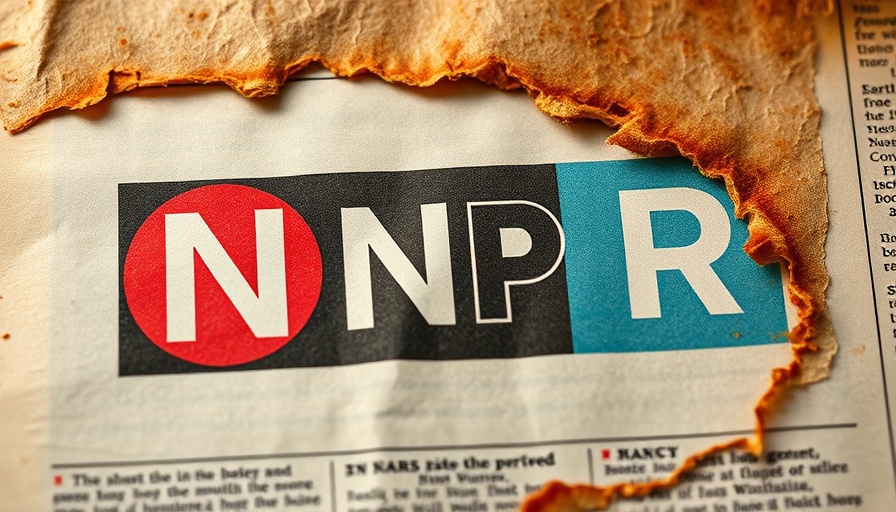
The Funding Debate: Public Broadcasting's Role in Today’s Media Landscape
The current legal battle between National Public Radio (NPR) and the Trump administration over federal funding is stirring a considerable debate about the role of public broadcasting in America. NPR's argument hinges on the notion that cutting funds is a violation of free speech; however, historical and legal perspectives suggest otherwise. The central question remains: should taxpayers be compelled to subsidize media entities whose biases potentially shape public discourse?
The Legal Background: Understanding Free Speech Rights
At the heart of NPR's lawsuit lies the First Amendment, which the organization claims is being infringed upon by the discontinuation of government funding. However, recent rulings indicate that the government does not violate free speech rights by choosing not to fund specific outlets. This principle intends to affirm the idea that the constitution doesn’t obligate taxpayers to support media entities that may not align with their values or perspectives. Critics argue that the allocation of taxpayer dollars should reflect a broader consensus and not merely the biases of the organizations receiving those funds.
The Current Funding Structure: Is It Fair?
NPR and PBS collectively rely on the Corporation for Public Broadcasting, which distributes around $500 million annually to public broadcasters. This funding structure has come under scrutiny as many taxpayers question whether public broadcasters adequately represent diverse viewpoints. A senior editor from NPR previously acknowledged concerns regarding perceived biases in reporting, indicating a growing perception that NPR may not deliver a balanced portrayal of current events.
Perceived Bias: The Impacts on Public Trust
The accusation that NPR and PBS do not present a fair account of events directly feeds into the larger narrative of media mistrust in the U.S. Investigating the composition and direction of public broadcasting is essential, especially as it plays a crucial role in informing the public. With the emergence of alternative media sources and shifting consumer preferences, NPR's positioning within the media landscape raises critical questions regarding accountability and transparency.
Public Perception: What This Means for Taxpayers
The challenge now is understanding how taxpayers view this funding debate amidst increasing calls for budget cuts and reallocations. Many high-income earners in urban centers like Philadelphia express frustration over tax dollars being funneled into media they perceive as partisan. The critical takeaway for taxpayers is the opportunity to advocate for a media landscape that reflects a wider array of opinions, thereby fostering a culture of diverse dialogue and debate.
Looking to the Future: Implications of the Lawsuit
The outcome of NPR's lawsuit may set a precedent for how public funding for media is approached in the future. If the courts align with the argument that funding cuts do not equate to a violation of free speech, it could potentially lead to significant reforms in how public broadcasting is financed. Conversely, if NPR prevails, it might secure a lifeline for federal funding amid growing public skepticism of traditional media.
Engaging with Public Broadcasting: A Paradigm Shift Might Be Needed
As the discussions surrounding public funding for broadcasting continue, it's vital that stakeholders engage in a constructive dialogue regarding the quality and focus of content produced by these entities. Encouraging transparency and accountability could foster greater public trust in NPR and PBS, allowing them to thrive in a media landscape that increasingly prioritizes inclusivity and multiple viewpoints. For taxpayers, understanding these dynamics is essential for effective civic engagement.
In conclusion, the conversation about whether NPR and PBS deserve taxpayer funding necessitates a balanced approach that weighs the values of free speech, accountability, and public interest. As a society, it is imperative we reflect on how public funds are utilized within national narratives and what implications that holds for future discourse.
 Add Row
Add Row  Add
Add 




Write A Comment